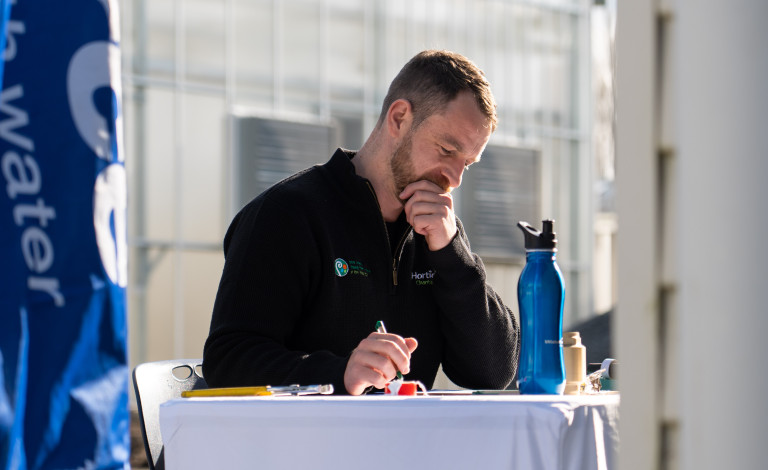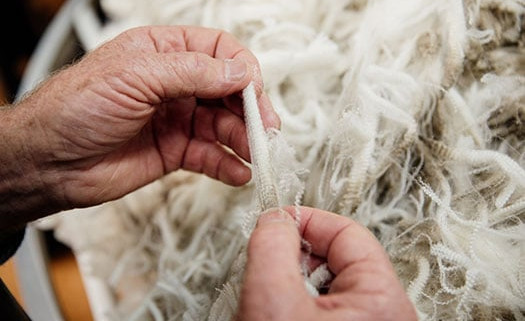Lincoln scientist helps map COVID vaccine plant’s genetic blueprint to boost research
11 August 2023 | News
A Lincoln University researcher is part of an international collaboration that has determined the complete genome sequence of a plant used to make COVID vaccine candidates.
Their paper has just been published in Nature Plants and on a website providing complete access to the genome and its annotation, which will assist the global scientific community's research into the plant.
Lincoln University Associate Professor in Plant Genomics and Molecular Biology, Dr Chris Winefield, is an associate investigator in the Australian Research Council Centre of Excellence for Plant Success in Nature & Agriculture. He worked with a team led by the Queensland University of Technology (QUT) to determine the genome sequences of two strains of native Australian tobacco Nicotiana benthamiana, a plant used worldwide for fundamental research and biotechnology.
COVID-19 vaccine candidates were made in less than three weeks after access to a spike protein sequence from the plant.
This enabled huge advances in medical science and diagnostics, and determining the sequence of the N. benthamiana genome has the potential to similarly aid biotechnological and agricultural research and plant-based production of vaccines and therapeutics.
Associate Professor Winefield’s main involvement in the research was to annotate the repeat element space of this large genome.
"This genome resource has provided insight into the mobile element compliment in the genome of N benthamiana and has shown a recent and ongoing burst of activity that may underpin this plant's remarkable abilities to survive in Australia’s harshest environments," he said.
"The plant is one of the most important model plant species in the world, sought out by an ever-increasing number of research laboratories for a range of studies, due in part to its ease of growth and ease to genetic transformation."
Project leader Professor Peter Waterhouse, of QUT, said N. benthamiana was regarded worldwide as a workhorse for fundamental research and biotechnology.
"Access to this plant’s genome provides resources for biotechnology and for research on evolution, gene regulation and epigenetics," he said.
"N. benthamiana has become the species of choice for testing and implementing some of the most advanced discovery and engineering approaches in plant biology, because it is unmatched for fast transient transgene analysis.
"It is used by biopharming researchers to produce complex biologics (medicines that have been created in using living cells or organisms) with low production costs, high yields, and ease of scalability," he said.
Main image: Nicotiana benthamiana.


